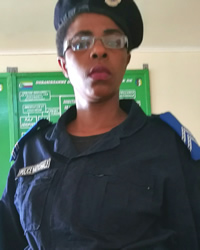Comorian, Mwali in Comoros

Photo Source:
Willerhawk - Wikimedia
Creative Commons
|
Send Joshua Project a map of this people group.
|
| People Name: | Comorian, Mwali |
| Country: | Comoros |
| 10/40 Window: | No |
| Population: | 44,000 |
| World Population: | 46,800 |
| Primary Language: | Comorian, Mwali |
| Primary Religion: | Islam |
| Christian Adherents: | 0.10 % |
| Evangelicals: | 0.01 % |
| Scripture: | Translation Started |
| Ministry Resources: | No |
| Jesus Film: | No |
| Audio Recordings: | Yes |
| People Cluster: | Bantu, Swahili |
| Affinity Bloc: | Sub-Saharan Peoples |
| Progress Level: |
|
Introduction / History
Comorians live on a group of islands in the Indian Ocean between Madagascar and Mozambique, Africa. The Comoros chain consists of four main islands plus several smaller ones. Mwali, AKA Mohéli, is one of the four larger islands. The different Comorian groups take their name from the particular island on which they live. Thus we have the Mwali Comorians. Mwali Comorian communities can be found on Mwali Island as well as in Madagascar. Each island has their own language.
The official name of the islands is the Federal and Islamic Republic of the Comoros. Until 1975, all the islands belonged to France. At that time, the three largest islands declared their independence; but Mayotte, the fourth island, chose to remain a French possession. The Comorians are a blend of settlers from the past: Iranian traders, mainland Africans, Arabs, and Malagasy.
What Are Their Lives Like?
Most of the Mwali islanders work as farmers or fishermen, while a few raise cattle, sheep, goats, and donkeys. A small number work in industry or in jobs relating to tourism. The basic diet of Mwali Comorians consists of rice, potatoes, corn, fish, coconut, and bananas. They also grow sweet potatoes, citrus fruits and pineapples.
Although young people wear Western style clothing, traditional clothing is still common among older adults. Polygamy is an acceptable practice among Comorians. Children are expected to help with the farming, fishing, and caring of the animals. For recreation, Comorians enjoy dancing, singing, and playing instruments, especially horns and drums.
Over one-quarter of all Mwali Comorians live in cities; but whether in rural or urban areas, housing on the island is generally of poor quality.
What Are Their Beliefs?
A person living on the Comoro Islands might attend a mosque on Friday but feel no guilt about using charms from witch doctors on other days of the week. Witchcraft blends comfortably with Islam on the Comoro Islands. Most members of the Mwali people group see no contradiction between the two. They know that Allah is the sovereign creator, but they think that other spiritual forces must be dealt with for practical, day-to-day needs. Allah is too distant to deal with such matters.
What Are Their Needs?
The physical needs of Comorians are numerous. Major problems on the Comoros Islands include poverty, disease and hunger. Educational levels are low, and less than half of the population is literate.
There is a shortage of hospitals and doctors, and many people suffer from illnesses and chronic malnutrition. Because of a poor water supply, good hygiene is lacking. Such problems contribute to a high death rate, especially among young children.
The spiritual needs of the Comorians are even greater than their physical needs. Though freedom of religion exists on the islands, evangelism is not well received by these Muslims. Their commitment to Islam, coupled with involvement in occult practices, has made these people difficult to reach.
The number of Comorian believers remains small. Prayer is the first step toward seeing these people reached with the good news that Jesus Christ came to set them free from sin and death.
Prayer Points
Pray for spiritual openness among the Mwali Comorians.
Pray for more workers to go to them until there is a strong movement to Christ.
Pray for the Lord to show Himself powerful and merciful by providing for their physical needs.